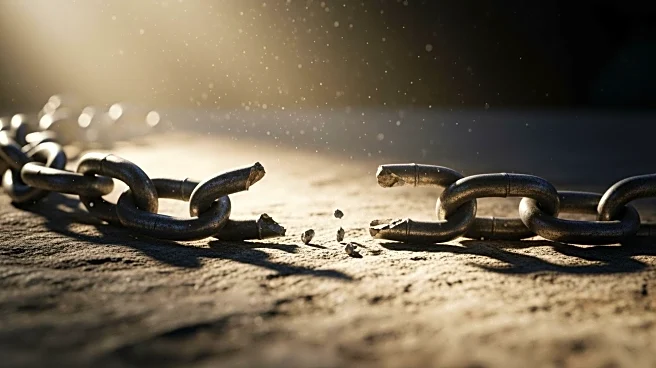What's Happening?
Israel has accused Hamas of violating a U.S.-brokered ceasefire after two Israeli soldiers were killed in Gaza. The incident occurred in Rafah, southern Gaza, where Israeli forces were reportedly attacked
with rocket-propelled grenades and sniper fire. In response, Israel launched airstrikes in the area, marking the first major test of the ceasefire that began on October 11. The Israel Defense Forces identified the deceased soldiers as Major Yaniv Kula and Staff Sergeant Itay Yavetz. Hamas, however, denied involvement in the attacks and accused Israel of fabricating pretexts to justify its actions. The ceasefire, which ended months of fighting, is now under significant strain.
Why It's Important?
The ceasefire was seen as a critical step towards stabilizing the region and allowing humanitarian aid to reach Gaza, which has been facing severe shortages. The recent escalation threatens to derail these efforts and could lead to renewed hostilities. The situation is further complicated by internal clashes within Gaza, as Hamas targets rival groups. The international community, particularly the U.S., has a vested interest in maintaining the ceasefire to prevent further humanitarian crises and regional instability. The halt in aid by Israel, pending further developments, could exacerbate the already dire conditions in Gaza.
What's Next?
Israeli Prime Minister Benjamin Netanyahu has ordered a halt in aid to Gaza and instructed military forces to respond forcefully to any further violations. The situation remains tense, with potential for further escalation if the ceasefire is not upheld. The international community, including the U.S., may need to intervene diplomatically to prevent a complete breakdown of the truce. Hamas has indicated a willingness to continue adhering to the ceasefire, but mutual distrust and ongoing accusations could hinder peace efforts.









